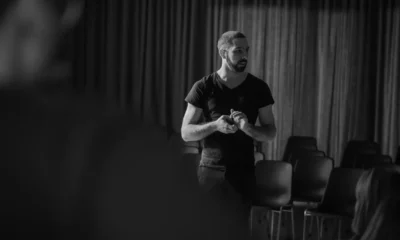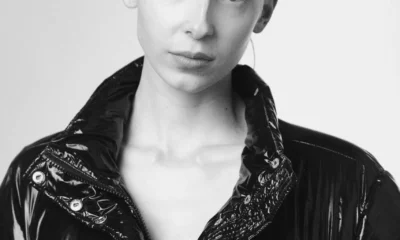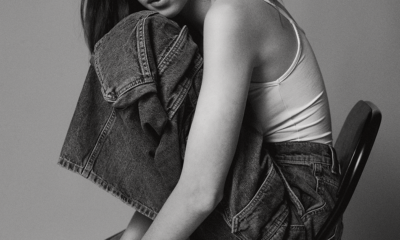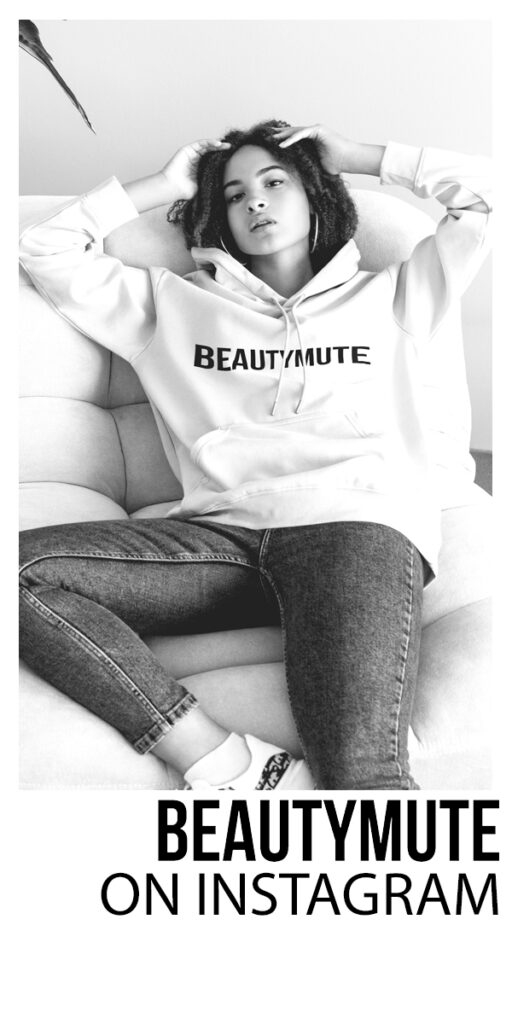Interviews
Interview with Tatiana Kurnosova
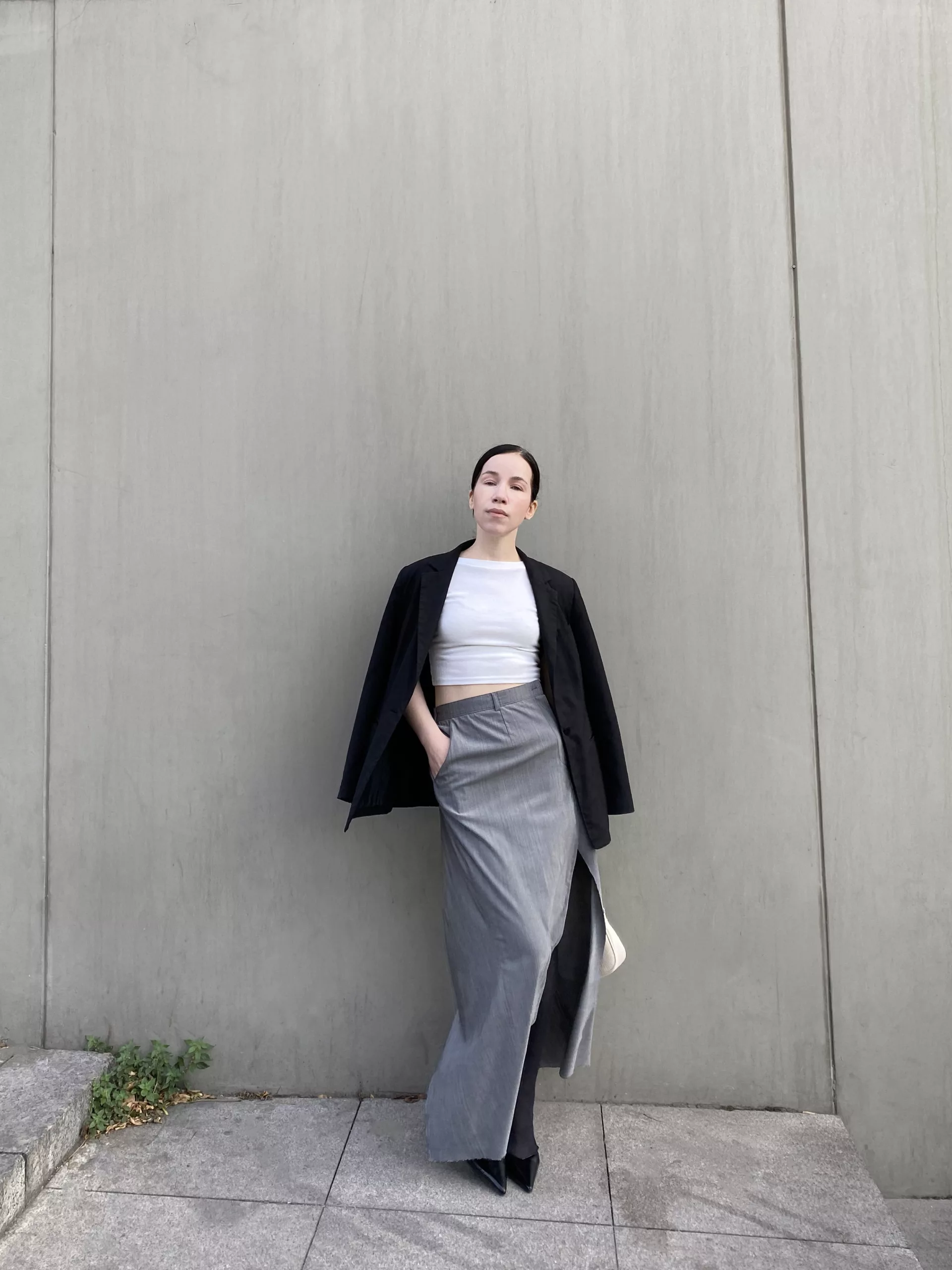
Could you share more about your transition from architecture and interior design to the fashion industry? What inspired this significant shift in your career?
Of course! First of all, thank you so much for having me. I’m honored being interviewed by you and excited to share my story. Actually I’ve always been into fashion and wanted to study fashion design, but due to some circumstances I ended up majoring in Architecture and Interior design instead. I can’t say it wasn’t interesting – it was exciting time of my life and definitely have brought me so many opportunities and knowledge I still keep on using in my job. We’ve studied the history of art, painting, color theory and so much more that helps forming your aesthetic, visual taste and unique vision.
I went to study Japanese language in Japan, since I was always fascinated by Japanese culture and art, as well as Asian cultures in general. Everything there was so interesting and inspiring and it was also the time when I bought my first camera and kept on bringing it everywhere with me. I’ve captured architecture, people, streets, Japanese shrines and temples, the sea – just everything I saw… At that time I’ve also started taking portraits of my friends / students of the language school that were studying with me. To be honest, I didn’t want this lifestyle to be over, but I had one more year until my graduation and had to go back to Russia, my home country, to finish studying.
When I got back, during my last University years, I’ve started working with local modeling agencies – doing model tests, both photographing and styling. As I’ve already mentioned – I was always interested in fashion and expressing myself through style was very important for me. When I’ve started working with the agencies, styling the shoots by myself have helped me seeing my direction clearer – I wanted to work in fashion industry and learn more about this world. I’ve met so many talented people during that time, attended fashion shows and felt like I wouldn’t want to go back to architecture and interior design, even though by then I’ve already been working as an interior designer and have won few awards in the architectural field. It wasn’t passion, yet a valuable period of my life that allowed me coming to a place where I am now.
So, basically Japan and Asian culture has brought me back to fashion world that was always a part of me. Even though I haven’t studied fashion design as I’ve planned, I think I’ve ended up being where I’m supposed to be. Since then I’ve always been listening to my inner voice and doing exactly what I want to do, what I enjoy the most. And I try to follow these rules in my life: do what you love, be happy, bring good things into this world and be kind to everyone.
After graduating the University, I’ve moved to Milan and have started working with modeling agencies there. I see this period as the beginning of my career.
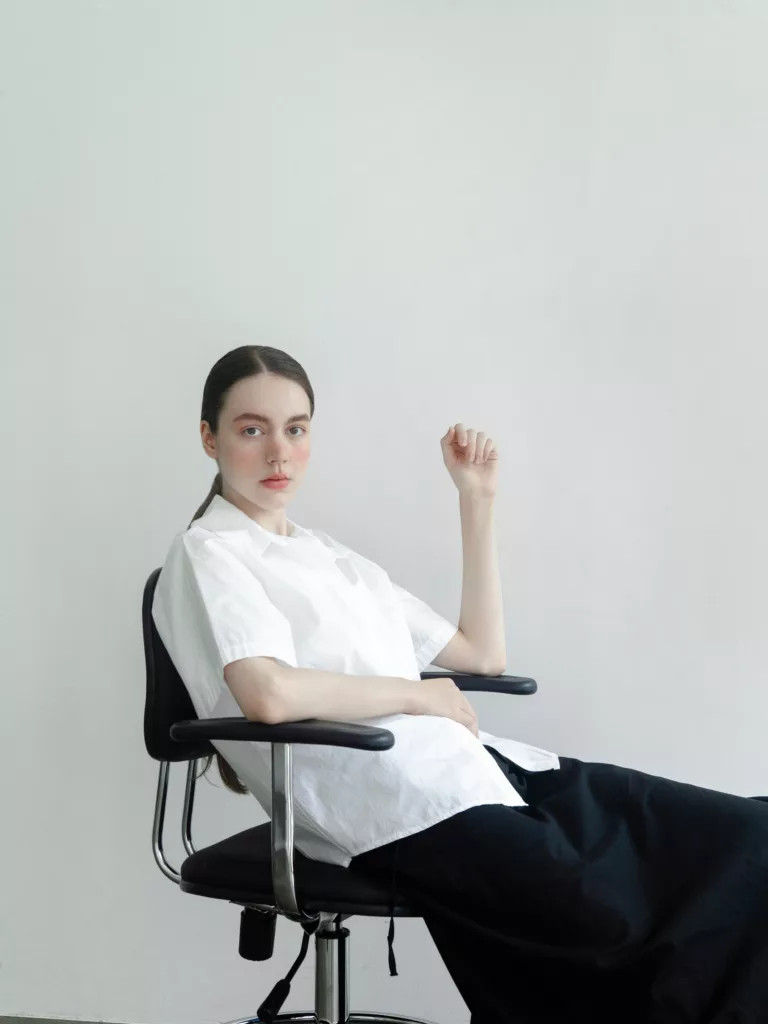
Having worked in fashion hubs like Milan, Paris, Tokyo, and New York, how do you think these diverse cultural experiences have influenced your work and approach to fashion photography?
What an interesting question! When I first came to Milan, then Paris, I was most influenced by the classic photography legends like Helmut Newton and his dramatic black and white pictures. I was shooting model tests in mostly black and white, minimalistic style. I think Europe itself was bringing that classic timeless feeling to my works. I was in the middle of classic European Art heritage, I could visit so many museums and historical places and of course the people, the streets and the city were influencing me as well.
I love Italian vibes – sophisticated, stylish, relaxed, sometimes a bit loud and bold. Paris is more calm and neutral – I love it the most to be honest. I never thought I would fall in love with Paris and never even wanted to visit it. I mean, of course, I thought it would be nice to visit, but have never dreamed of it nor had any expectations, never romanticized it as well… And when I first have visited it something “clicked” – it was a match haha! Light beige color palette of the city made me realize that high contrast in photography isn’t always the best, black and white isn’t the only thing I want to explore. I’ve started working with color more, exploring gentler and more feminine style and thinking more of what the brand would need – I’ve started working with the brands as well.
I think once I’ve started traveling, I’ve realized how many benefits it could give me as a professional in this industry – I could learn each fashion market from the inside, I could see what faces are trendy in particular country, what brands are more focusing on, what casting director are looking for and etc. Of course the trends are changing, but there are some things that are the same – it’s the cultural base, the heritage. Each country, each city has it. When you get booked for a client from a certain market – you can already expect what they would want you do create, what would be their goals and etc. And if they client is targeting certain markets – again, thanks to this experience, I can offer them so much more than just a high-quality pictures. Together with my team I do full production starting from the concept development to final result, the visual content that helps selling the products.
NYC – captivating, vibrant, extremely photogenic and full of opportunities. This market is incredible, it makes you both love it and hate it sometimes, because it’s so controversial. But I believe everyone should visit it at least once and if you are working in fashion industry, you should definitely experience it as well.
Japan is a different story for me, because it always felt like home from the moment I’ve landed there for the first time. Like when you know that you belong here. It’s not a love from the first sight, it’s more like a feeling that you have returned to where you were supposed to be, where your soul is. Japanese culture is so different from European, from what everybody used to.
So, coming to a conclusion – all of these diverse cultural experiences have gave me an opportunity to bring some exceptional perspectives to my works and offer the unique vision to my clients. I help them being heard through pictures, being successful in targeted markets. Visual content has a very powerful voice and it’s nice when you are able to speak through your works beautifully.
You mentioned a fascination with Asian art and culture. How does this interest manifest in your work as a fashion photographer and stylist?
I follow aspiring Asian designers and trends as well as love the minimalism that is very common in Japan and Korea, where I am based now. When I’m in Asia, I often choose to work on location. You can also notice the Asian vibes by either seeing the models I work with or the overall aesthetic – minimalistic, mostly monochrome, geometrical. Though I do like “going crazy” sometimes too when it fits the client’s aesthetic like shooting in the middle of the busy street, Asian market, I love old buildings in residential area of Tokyo and Seoul… The other times it’s not that obvious, but it is there.
And I’ve noticed that I’ve been getting more and more bookings from clients from Singapore, Japan and other Asian countries, I guess maybe because they see in my works both classic European vision and understanding of Eastern culture too.
Now, while doing full production, I am also able to cast the models I love (of course with the confirmation from my clients), so I often choose to work with Asian and mixed models. There are always some limitations / client special requests, but I’m trying to showcase as much diversity as possible and work with talented new faces.
You have published educational books about modeling and have a YouTube channel dedicated to the subject. What motivated you to take on these educational roles, and what impact do you hope to achieve through them?
I’m a very open-minded person and I love communicating with people. So, each time I had a new booking, especially in the beginning of my career, I had a chance to spend a lot of time with models, agencies’ staff etc. and often became friends with them.
At first it was a huge educational / learning experience for me, but after I’ve gained years of experience in the field and had worked as a model scout and booker myself – I’ve started helping new faces along the way when I met them and they were sharing their concerns, asked me some questions. I’ve figured out it would be nice to not only share this information privately with the people I meet by chance due to work, but share it with the larger audience. You know some things that may seem obvious for me and models who’d been in this field for years, can actually be a discovery for the newcomers.
So, I first started posting model interviews on my YouTube channel, then I got an idea that it would be nice to let people know how you can become a model, what you need to get into the industry, how get started, build a portfolio, what works for one modeling market and what doesn’t and etc. and I’ve created several books of mine that can be found here
At some point I’ve started getting requests about model coaching sessions and private consultations. At first I was a bit hesitating – not because I didn’t have enough knowledge and experience in the industry, but because it’s the whole new world and coaching is really special – it can help people discover their needs, set up the goals and achieve success easier, quicker and in a more fun way. This is actually a huge responsibility. So, it took me some time to accept my first coaching clients – I’ve dived deeper into this field to make sure I’ll be able to provide both valuable information and support to aspiring models and their parents.
And guess what? Now I absolutely love it! You can always find helpful resources on my YouTube channel that are absolutely free of charge, by the way, please feel free to check it out and subscribe. But when it comes to model coaching sessions, it’s different, because we are focusing on a model’s personal case and trying to find the ways to elevate their careers and bring more opportunities to them based on their unique background, visual appearance, experience and etc. Some things are basic and similar for everyone, but some not.
In your one-on-one model coaching sessions, what are some key pieces of advice you find yourself often giving to aspiring models?
Maybe this would seem a bit unexpected, because it doesn’t include the exact facts about the industry’s structure, rules and etc, but I find it very important to talk about mental health and also showing model’s unique personality.
For example, sometimes models are afraid to post more lifestyle content on their social media wondering if it would look professional or not, should they share something or should they only keep the photos from their jobs and everything else is irrelevant and so on. There are actually so many questions regarding social media these days! So, my point of view here is that you absolutely should share your interests, your style, your daily life (of course if you want to) – it is a part of who you are and what makes you unique. Let’s say, the model has an experience in dancing (was a professional dancer in the past) and still enjoying it. So, imagine there is a casting for some TV ad requiring dancing and when the casting director will check model’s social media and see that dancing –related content, it will give the model an advantage. Anything can happen – the clients and casting directors could simply love how genuine and cute model’s social media looks too.
What I also often talk about is the confidence. Confidence is directly connected to mental health and it also helps us achieving our goals. When the person is confident, they radiate this unique glow that attracts people. Fashion industry and modeling can often be so overwhelming and it’s important to understand that this is only a business – it’s not personal. When you are aware of this, it’s easier not to loose your confidence. In modeling world everybody are hearing “no” and being declined way more often when getting accepted, so you need to have thick skin and never lose your confidence.
It’s important to keep on being focused on yourself, working on your goals, your growth, your education and not being distracted by someone else as well. We all have different stories and different backgrounds. We are all unique. Once you understand this – things get easier and you can see your path clearer.
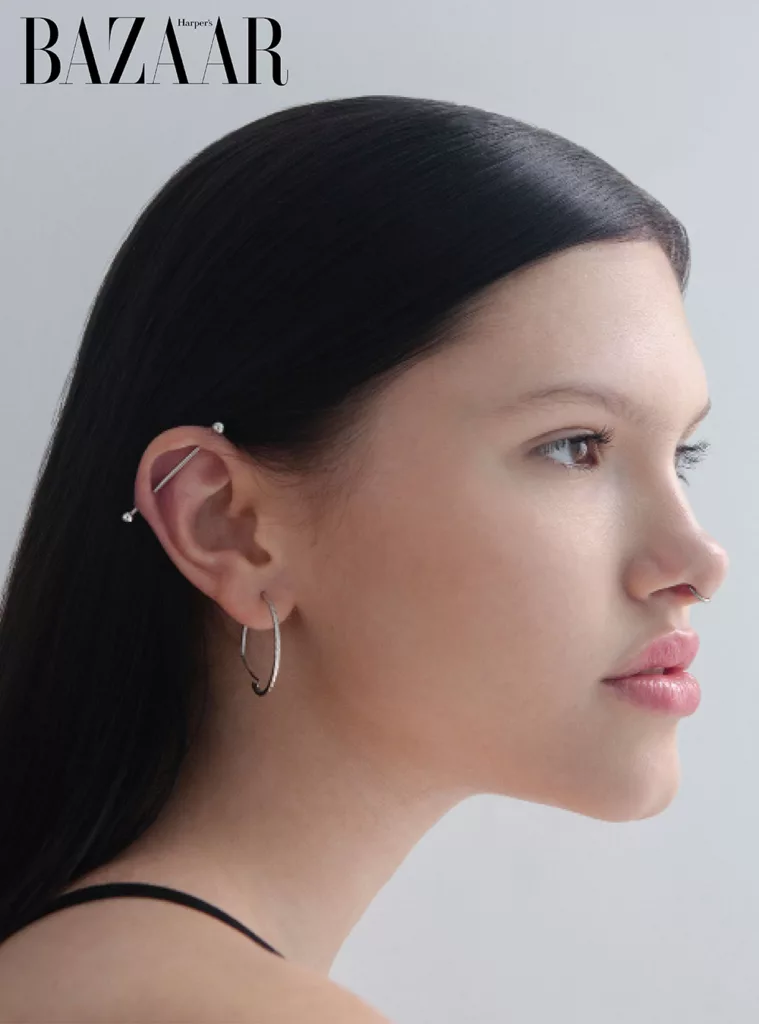
With over 13 years in the fashion industry, how have you seen it evolve, especially in terms of digital media and online content creation?
I would say the fashion industry has definitely become more diverse and open-minded, even though there’s still so much to be done… As I said while answering your previous question – social media is very important for everyone’s career. Being not only a model, but also an influencer, can bring you more clients and open so many doors.
Once starting as a fashion photographer, I’ve quickly realized that I also love being seen and not only standing behind the camera. I guess it’s one of the reasons my YouTube channel has been changing along with me throughout the years and now it’s like an integration of lifestyle and educational content. I put myself there more as well as find it really important being seen on social media as a person, not only as a professional. People love seeing who you are, they book you because of both the quality of your work and your personality.
I think now digital media and online content creation have become so common that it is obvious the clients first check your social media accounts to have an impression of who you are. It has definitely become easier to connect with industry professionals now comparing to several years ago as well as getting a chance being noticed online.
And of course I can not ignore the fact of introduction of AI. Some people are afraid of it, afraid that all of us will loose our jobs. I believe it won’t happen. Nothing would be able to replace talented people. Yes, AI is amazing, but it’s not perfect and there always be the clients who’d see the difference and will recognize the real quality.
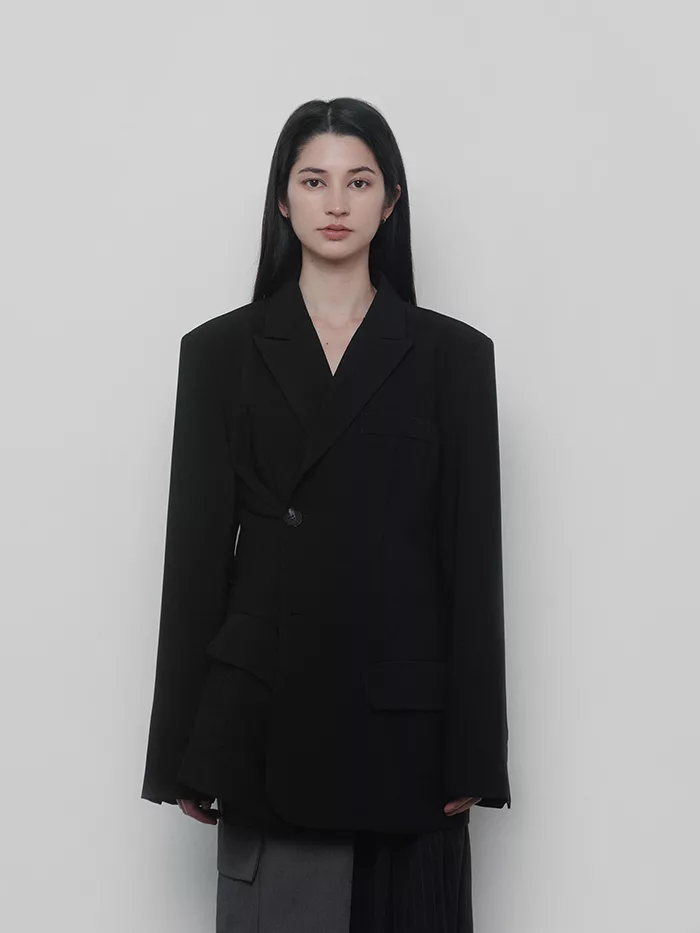
How would you describe your personal style philosophy, both as a stylist and as an individual?
Minimalistic, simple and sensual. I enjoy experimenting and combining very feminine clothes and accessories with something super casual and comfy. I love classic timeless pieces and prefer to only buy clothes that I need and keep it as sustainable as possible.
Could you walk us through your creative process when working on a newproject, from conception to execution?
For me it’s always almost the same: first I try to get to know my client better and understand the concept of their brand. It allows me to figure out their style and market they are targeting, their budget and needs. When working on full production projects, we discuss the client’s preferences regarding the model, create a moodboard and do the model casting. After that, when the models are booked, we just do the shooting. Most of the times I work with the same team, but sometimes I book freelancers if I feel like someone’s style will fit the particular project better. I find inspiration everywhere: from architecture to cinema and fashion garments, nature, textures… During work I often follow my intuition and I know it’s the right thing to do.
Looking back at your career, what are some of the most memorable projects or moments that stand out to you?
I value all of my works and experiences and believe every project has led me to where I am now and contributed into my career one way or another.
I would like to mention my recent beauty editorial for Harper’s Bazaar Vietnam. It perfectly represents my current photography style and I love how captivating yet simple its mood is. The cold color palette and the transition from soft make-up looks to the bold ones – everything perfectly matches my mood.
Every project I did in Japan was special to me and also some modeling work I did myself for the local Korean brands. Most of them have contacted me, because they liked my instagram account aesthetics and my look. It was very flattering and I was honored to model for them.
What are your aspirations for the future, both in terms of your personal career and the fashion industry as a whole?
I really hope that the fashion industry will go towards sustainability and providing better working conditions for models and everyone involved in this business.
My personal aspirations would be bringing more value to models by creating helpful content; continuing doing model coaching sessions and working on mental health topics more and simply creating beautiful and inspiring visual content. In general, I would love to enjoy the process of creating whatever it would be.
-
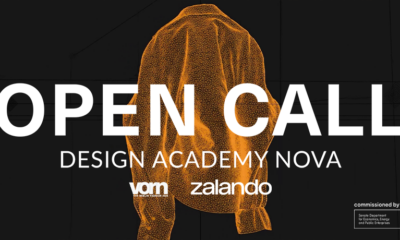
 Fashion3 months ago
Fashion3 months agoZalando and VORN – The Berlin Fashion Hub Launch Fourth Edition of Design Academy: NOVA
-

 Fashion3 months ago
Fashion3 months agoMagda Butrym H&M previews in NYC with a star-studded and flower
-

 Fashion3 months ago
Fashion3 months agoZalando launches new campaign to celebrate its exclusive partnership with iconic Diane von Furstenberg
-
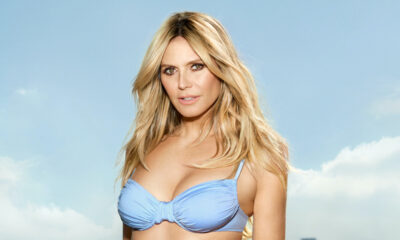
 Fashion3 weeks ago
Fashion3 weeks agoCalzedonia Celebrates Summer – and Heidi Klum!


